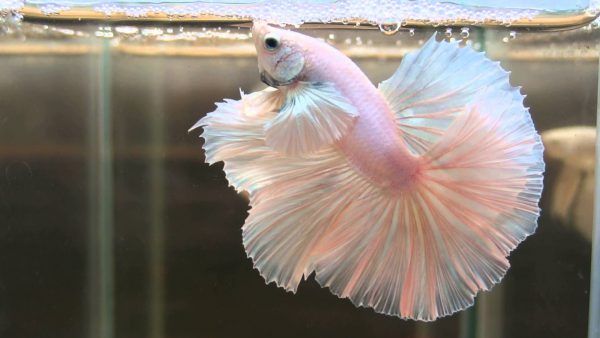Betta fish, also known as Siamese fighting fish, are a popular choice for aquarium enthusiasts due to their vibrant colors and striking personalities. However, one of the most common questions that prospective betta owners ask is: How long do betta fish live? Understanding the lifespan of betta fish is crucial for providing them with the best care and ensuring they thrive in captivity.

In general, betta fish can live between 3 to 5 years under ideal conditions. However, some bettas may live longer, up to 7 years or more, depending on factors like genetics, diet, water quality, and overall care. Understanding these variables can help you maximize your betta fish’s lifespan and create a suitable environment for them to live a long, healthy life.
Several factors influence how long betta fish can live. Here are the most important considerations:
Betta fish are sensitive to poor water conditions. In the wild, they inhabit shallow ponds, so maintaining clean water with the correct pH, temperature, and low ammonia levels is crucial. Regular water changes (at least 25-30% every week) are necessary to prevent harmful toxins from building up.
While bettas are often kept in small tanks, this is not ideal for their longevity. A minimum tank size of 5 gallons is recommended for a betta to have ample space to swim and explore. A larger tank with proper filtration and plants can reduce stress and provide a more natural habitat, contributing to a longer lifespan.
Betta fish are carnivorous and require a protein-rich diet to stay healthy. High-quality pellets, frozen or live foods such as bloodworms, and brine shrimp are excellent choices. A poor diet can lead to health issues and a shortened lifespan.
Some bettas are simply predisposed to live longer than others. Betta fish bred for show purposes may have shorter lifespans due to the selective breeding process. Wild-caught bettas tend to live longer because they have more robust genetic lines.
Betta fish are tropical species and thrive in warmer water temperatures. The water temperature should be maintained between 76°F and 82°F (24°C to 28°C). Temperatures that are too cold can slow their metabolism and lead to health problems.
Even with proper care, bettas can encounter health issues that may affect their lifespan. Some common problems include:
Fin rot: Caused by poor water quality and bacterial infections, fin rot can quickly deteriorate a betta’s health.
Ich (white spot disease): A parasitic infection that causes white spots to appear on the fish’s body. It is often a result of stress or poor water conditions.
Dropsy: A condition where the betta's body swells due to internal organ failure, often related to poor water quality or bacterial infection.
To maximize your betta fish’s lifespan, here are some tips to follow:
Maintain Clean Water: Regularly change the water and keep the tank properly filtered.
Provide a Balanced Diet: Offer high-quality food and avoid overfeeding.
Avoid Overcrowding: Betta fish are territorial and can become stressed in overcrowded tanks, which may shorten their lifespan.
Minimize Stress: Keep the tank in a quiet location, avoid sudden temperature changes, and don’t place other aggressive fish in the same tank.
Monitor for Signs of Illness: Watch for symptoms like lethargy, loss of color, or abnormal behavior, and address potential health issues quickly.
Betta fish are relatively low-maintenance pets, but their lifespan is heavily dependent on the care they receive. In optimal conditions, they can live anywhere from 3 to 5 years, with some reaching 7 years or more. By paying attention to water quality, diet, tank size, and overall environmental factors, you can significantly improve the odds of your betta living a long and healthy life. Remember, a happy betta is a healthy betta!
Betta Fish Care Guide. (2023). Fishkeeping World. Retrieved from www.fishkeepingworld.com
Johnson, M. (2022). The Ultimate Betta Fish Care Manual. Tropical Fish Hobbyist.
Hartman, A. (2021). Betta Fish Lifespan: How Long Can They Live? The Aquarium Guide. Retrieved from www.theaquariumguide.com
animal tags: fish
We created this article in conjunction with AI technology, then made sure it was fact-checked and edited by a Animals Top editor.